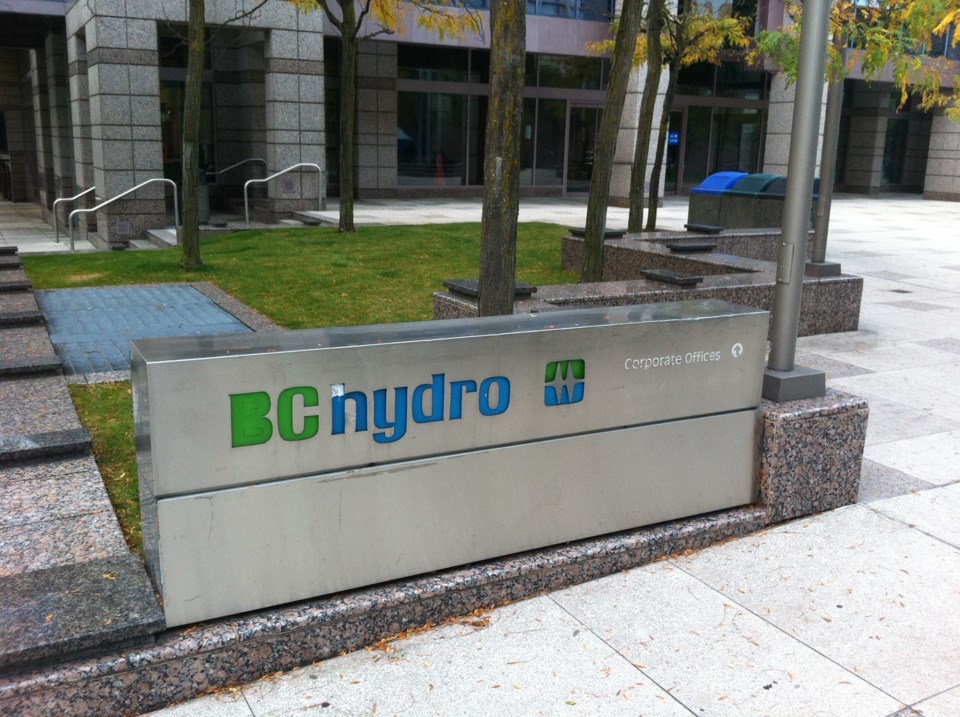The City of Campbell River is getting behind a private power-generating operation threatened with closure if B.C. Hydro does not renew its contract.
Council voted last week to support Capital Power and its Island Generation facility by asking the province, through B.C. Hydro, to renew the contract for electricity generated at Campbell River.
It also voted in favour of working with Capital Power of Edmonton to develop a plan to reach its objective.
It’s a matter of looking at the facts, said Coun. Charlie Cornfield, who made the motion at council.
“Vancouver Island is not self-sufficient in power,” he said.
Cornfield believes that Capital Power’s plant, which uses natural gas to generate electricity, delivers security to the Island because of its ability to provide backup power.
The private supplier was used by B.C. Hydro after the heat dome hit the region in late June. B.C. Hydro’s underwater cables bringing power from the mainland bulged where they came ashore on Vancouver Island.
About 70 per cent of the Island’s power arrives from the mainland via the cables.
B.C. Hydro continues to investigate the cause of the bulges.
So far this year, B.C. Hydro has used electricity from Capital Power on 78 days, said Ted Olynyk, B.C. Hydro spokesman. More than half of those days were in July and August combined.
If the private generating plant shut down because its contract to supply power on an as-needed basis is not renewed, that would mean the loss of 15 local jobs, said Cornfield.
The current contract expires in April 2022.
The company pays $1.5 million in property taxes to the city annually plus another $100,000 for water and sewage services.
Cornfield said the possibility of losing the plant is “like a triple whammy” to Campbell River, where aquaculture and forestry are key industries.
The federal government has ordered nearly 20 salmon farms in the Discovery Islands area closed by next year. Logging practices are being hotly debated as demonstrators fight to prevent old-growth trees from being logged.
Cornfield said that greenhouse gases from the private plant would be sequestered in trees in the region.
Capital Power is worried about its future because B.C. Hydro’s latest draft integrated resource plan does not favour renewing its contract with the company.
The final plan has not been completed, B.C. Hydro spokesman Ted Olynyk said. A final report goes to the B.C. Utilities Commission in December.
Olynyk said B.C. Hydro is committed to keeping rates low and making them as affordable as possible for customers. This includes reducing energy purchases from independent power producers. A priority is decreasing greenhouse gases, he said.
The value of the contract with Capital Power is confidential, he said.
Electricity bought from the private plant at Campbell River has helped to meet demand during winter months, when there is maintenance of B.C. Hydro facilities, as well as in the summer.
B.C. Hydro has about 200 megawatts in additional electrical capacity for the Island through its own power plants and the submarine cables, he said.
More options for electricity are available on the Island these days, including a wind farm and run of the river operations, Olynyk said.
Brian Vaasjo, Capital Power president, told Campbell River council that the plant, owned by the company since 2010, faces an uncertain future and the matter is urgent.
“We strongly disagree with B.C. Hydro’s view that Island Generation is not needed and believe it will have serious negative repercussions for the B.C. electricity system, particularly on Vancouver Island. It will also have additional negative impacts for Campbell River.”
The amount of electricity used on the Island is expected to grow, potentially at a more rapid pace with increased electrification, Vaasjo said.
“The importance and value of the facility is fundamentally its ability to be available as insurance to respond to the challenges that unforeseen events present for the system.”
“The Island Generation plant has run several times and for extended periods in 2021 to support reliability, including due to Site C construction, the June heat wave and transmission issues.”
He said that without a contract, it is likely that the plant would be decommissioned by the end of next year.



